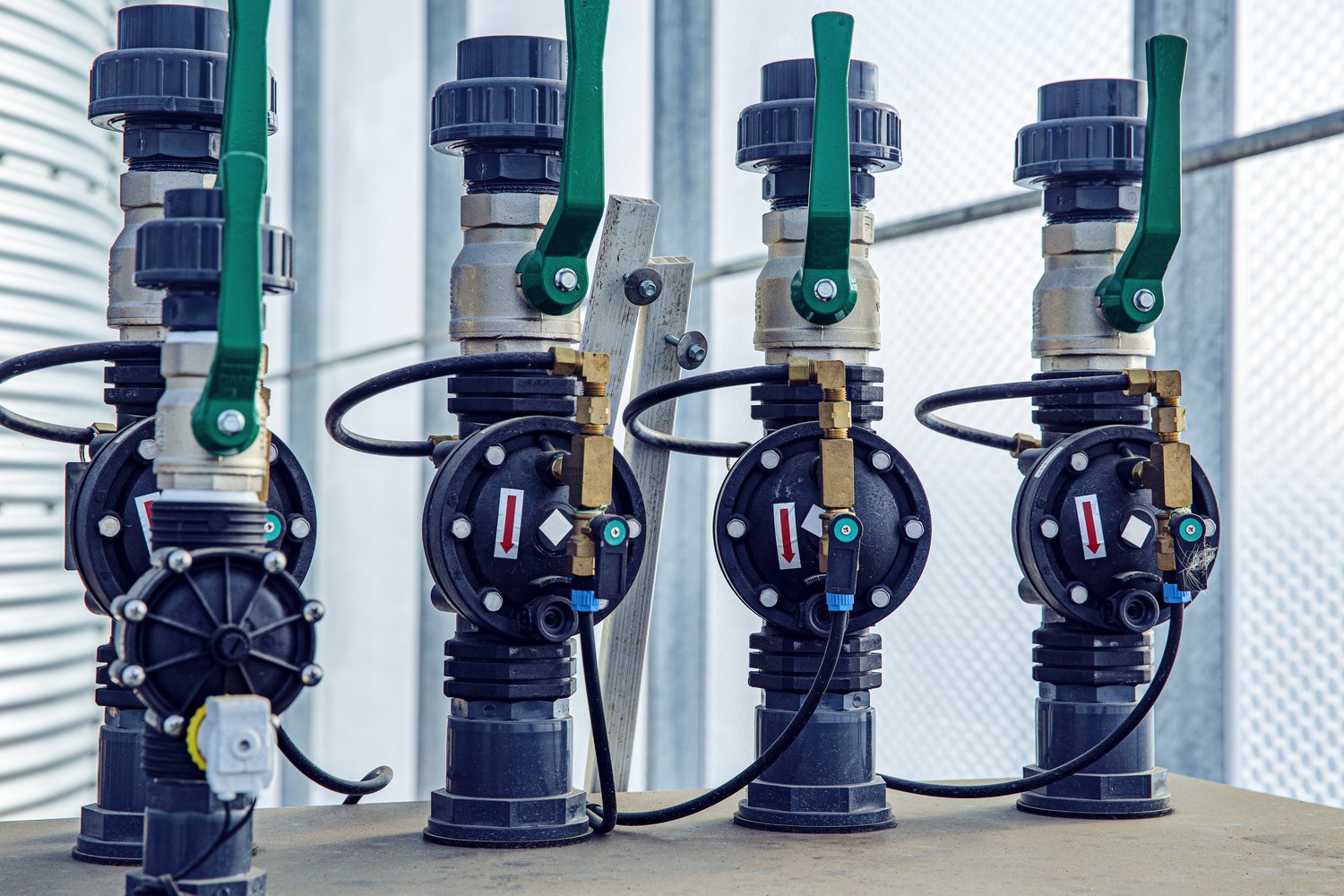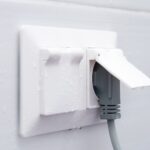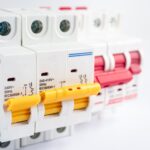In an era where technology seeks to seamlessly integrate into every aspect of our lives, smart water valve installations are emerging as a vital solution for protecting homes from the unforeseen menace of water damage. These advanced systems not only promise peace of mind but also revolutionize how we safeguard our living spaces from flooding. With flooding risks on the rise, there’s no better time than now to explore how automated shut-off systems can be a game-changer for your property.
- Learn how smart water valve installations operate to prevent costly water damage.
- Explore the cutting-edge features of automated shut-off systems that enhance home protection.
- Gain insights into the efficient installation process of these smart systems to ensure maximum efficacy.
- Benefit from maintenance tips that will extend the lifespan of your automated shut-off system.
This article will guide you through the importance of smart water valve technology, offering practical advice and real-world examples that highlight the efficacy and reliability of these systems. Equip yourself with the knowledge to make informed decisions and potentially save your home from significant water damage. Let’s delve into the world of automated flood prevention and ensure your property’s safety.
Understanding Smart Water Valve Installation: Key Concepts and Benefits
Smart water valve installations are transforming how we safeguard our homes from water-related disasters. These advanced systems offer a proactive approach to managing plumbing issues, functioning by detecting leaks and automatically shutting off the water supply to prevent extensive flood damage.
One of the critical benefits of smart water valves is their ability to provide real-time alerts. These systems are often connected to smartphone apps, which notify homeowners of any unusual water activity, allowing for quick intervention. This not only prevents potential damage but also helps conserve water by detecting small leaks that might otherwise go unnoticed.
Integrating smart water valves into your home’s plumbing setup is increasingly essential. Modern homes require solutions that offer both safety and convenience, and these systems fulfill both needs. They are especially critical in regions prone to weather-related water intrusion or in homes with aging plumbing systems at risk of leaks.
Another advantage is the peace of mind they bring. Knowing that your smart home is protected against the unforeseen can reduce stress and ensure your property investment is secure. With technological advancements making these systems more affordable and user-friendly, installing a smart water valve is a savvy move for any homeowner prioritizing home safety.
Choosing the Right Automated Shut-Off Systems
Selecting the ideal automated shut-off system for your home is paramount to achieving optimal protection against flooding. Several factors should guide your choice to ensure you are investing in a system that meets your specific needs.
Firstly, consider the system’s compatibility with your existing plumbing infrastructure. Some systems might require additional components or modifications during installation. It’s essential to ensure the chosen system integrates seamlessly with your current setup.
Technological advancements play a significant role in differentiating automated shut-off systems. Look for features such as Wi-Fi connectivity, which enables remote monitoring and control. This capability allows for real-time alerts and updates directly to your smartphone, enhancing your ability to respond to potential leaks swiftly.
Another factor is sensor sensitivity. A system with adjustable sensitivity levels can be fine-tuned to reduce false alarms while efficiently detecting genuine leaks. Additionally, ensure your selected system includes a robust power backup option to maintain functionality during power outages.
Finally, evaluate the reputation and reviews of potential manufacturers. Customer feedback can provide insight into the reliability and durability of a product. Opt for brands known for their quality and customer support, ensuring that your investment is protected not only by the hardware but also by comprehensive service and warranty agreements.
Guide to Smart Water Valve Installation: Prevent Flooding with Automated Shut-Off Systems
Incorporating a smart water valve into your home’s plumbing system is an innovative step towards enhanced safety and protection against flooding. The installation process, while technical, can be navigated smoothly with careful planning and precision.
Initial Preparation: Begin by selecting the appropriate location for your smart water valve. Typically, it’s installed near your main water line for optimal efficiency. Ensure the area is accessible and allows for easy connection and regular maintenance checks.
Installation Process: Turn off your main water supply before initiating any installation. Once you have the water shut-off, remove a section of the pipe where the valve will be placed. Most smart water valves come with detailed instructions, so follow these closely to secure the device properly.
Utilize proper sealing methods, such as Teflon tape around joints, to prevent any leaks. After setting the valve, reconnect the water supply to test its functionality.
System Integration: Many smart water valves include a wireless communication feature, enabling them to connect with home automation systems. Ensure that the device is synced with your smartphone or control panel for remote access. The system should notify you of any irregularities or potential leaks, allowing for immediate action.
Adopting best practices in your smart water valve installation enhances its effectiveness. With careful preparation, accurate installation, and seamless integration, you can confidently enjoy peace of mind knowing your property is safeguarded against water damage.
Maintaining Your Automated Shut-Off System for Longevity
Ensuring the longevity and reliability of your automated shut-off system requires regular attention and upkeep. By implementing essential maintenance strategies, you can prevent malfunctions and extend the lifespan of your equipment.
Routine Checks: Conduct periodic inspections to identify any wear or deterioration. Examine the connections for signs of corrosion or leakage, and address these issues promptly to prevent further damage.
Firmware Updates: Many modern smart water valves rely on software systems for optimal performance. Keep your firmware updated to benefit from the latest features and improvements. This will also help in maintaining compatibility with any other connected smart devices in your home.
Battery and Power Supply: Check the power supply regularly, especially if your device is battery-operated. Ensure that the batteries are charged and in good condition to maintain seamless operation. For devices connected to a power source, verify that the connections are secure and free from damage.
By following these maintenance tips, you can keep your automated shut-off system performing at its best. Regular attention to detail not only enhances the functionality of your system but also ensures that it continues to protect your home effectively.
Case Studies: Success Stories of Smart Water Valve Installations
Incorporating smart water valves into your plumbing system is a proven strategy to prevent flooding and safeguard your property.
Real-world examples provide compelling evidence of how these innovative devices can avert potential disasters and offer peace of mind.
Let us delve into a few success stories where smart water valve installations have significantly mitigated water damage, showcasing their reliability across different settings.
One small business owner in Manchester experienced a potential catastrophe during after-hours.
After installing a smart water shut-off system in their cafe’s kitchen, a burst pipe was detected almost immediately by the system’s sensors.
The automated shut-off feature sprang into action, halting the water flow and sending an alert to the owner’s smartphone.
Thanks to this automated intervention, the cafe avoided costly water damage and a potentially lengthy closure for repairs.
In another instance, a homeowner in London integrated a smart water valve into their home plumbing for enhanced security.
During a sudden downpour, excess pressure in the pipes triggered the automated system.
The valve promptly cut off the water supply and alerted the homeowner, who was able to address the issue with minimal hassle.
This proactive measure saved the household from a flooded basement, and substantial repair costs.
Additionally, a commercial property manager in Edinburgh opted for smart water valves to safeguard several rental units.
The investment proved its worth when a tenant inadvertently left a tap running, causing the smart system to intervene.
The automated shut-off prevented extensive damage to the building’s infrastructure, showcasing how these systems can also benefit multi-unit properties.
These case studies emphasize the crucial role smart water valves play in achieving efficient flood prevention.
By choosing to implement such technology, property owners and managers can significantly reduce the risk of financial loss due to water-related emergencies and enhance the overall resilience of their properties.
Smart Water Valve Installation: Common Questions
What is a smart water valve?
A smart water valve is an electronic device that can automatically control the flow of water in your plumbing system, helping to prevent leaks and flooding.
How does an automated shut-off system work?
Automated shut-off systems use sensors to detect leaks or unusual water flow, and they automatically close the valve to stop water damage.
What are the benefits of installing smart water valves?
These valves offer protection against flooding, reduce water waste, and provide peace of mind through remote monitoring and management.
Can I install a smart water valve myself?
While some DIY enthusiasts might manage installation, it is recommended to hire a professional to ensure proper setup and functionality.
How do I maintain my automated shut-off system?
Regularly check for software updates, inspect sensor connections, and test the valve function to maintain optimal performance.
Are smart water valves compatible with all plumbing systems?
Smart water valves are designed to be versatile but should be checked for compatibility with your specific plumbing setup before installation.





